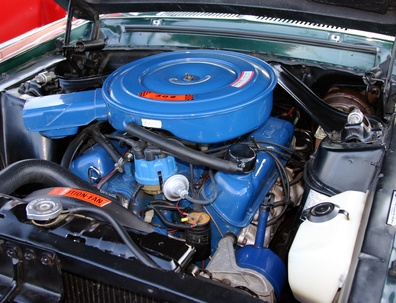
Buying a new car every time you have major engine trouble can be very expensive, but sometimes the cost of repairing an engine is more than the car is worth. Another alternative, especially if your car is in otherwise sound mechanical condition, is buying a replacement engine. Buying your own engine can save you a lot of money, but only if you know what you are doing. Failure to understand important considerations when buying something as expensive and complicated as a used engine can be quite costly.
Take your car to a trusted mechanic or call your car dealership to get complete details about your current engine, from year, make and model to the options included. You will need this information to make sure the new/used engine will fit. Make a list with your mechanic of questions to ask sellers to find the right size and type of replacement engine, as well as an accurate estimate of the installation costs.
Find out what is included with the engines you are thinking about buying. Some sellers will leave parts like alternators attached to the engine, which is good if you need one, but bad if you don't and have to pay a mechanic to take it off. Don't make assumptions about common attachments. Ask each seller for a detailed list.
Shop for a used engine at local salvage yards, in "Auto Trader" magazine and through online venues, such as the auto parts section of craigslist.org and even on eBay. Ask the salvage yards in your area to let you know if a used engine meeting your specifications becomes available. Take your time and explore as many options as possible before you buy. Make sure you fully understand the details of the shipping agreement if you buy a used engine online. Find out if you can have the engine delivered to your mechanic's shop to reduce shipping costs.
Ask the seller for the VIN number or find it on the engine block of the salvage engine you are examining. Run the VIN number through a car history tracking system like Carfax.com. Look for incidents that may have damaged the engine, such as flooding, fire, or serious accident, as well as discrepancies between the estimated mileage and the mileage given to you by the seller.